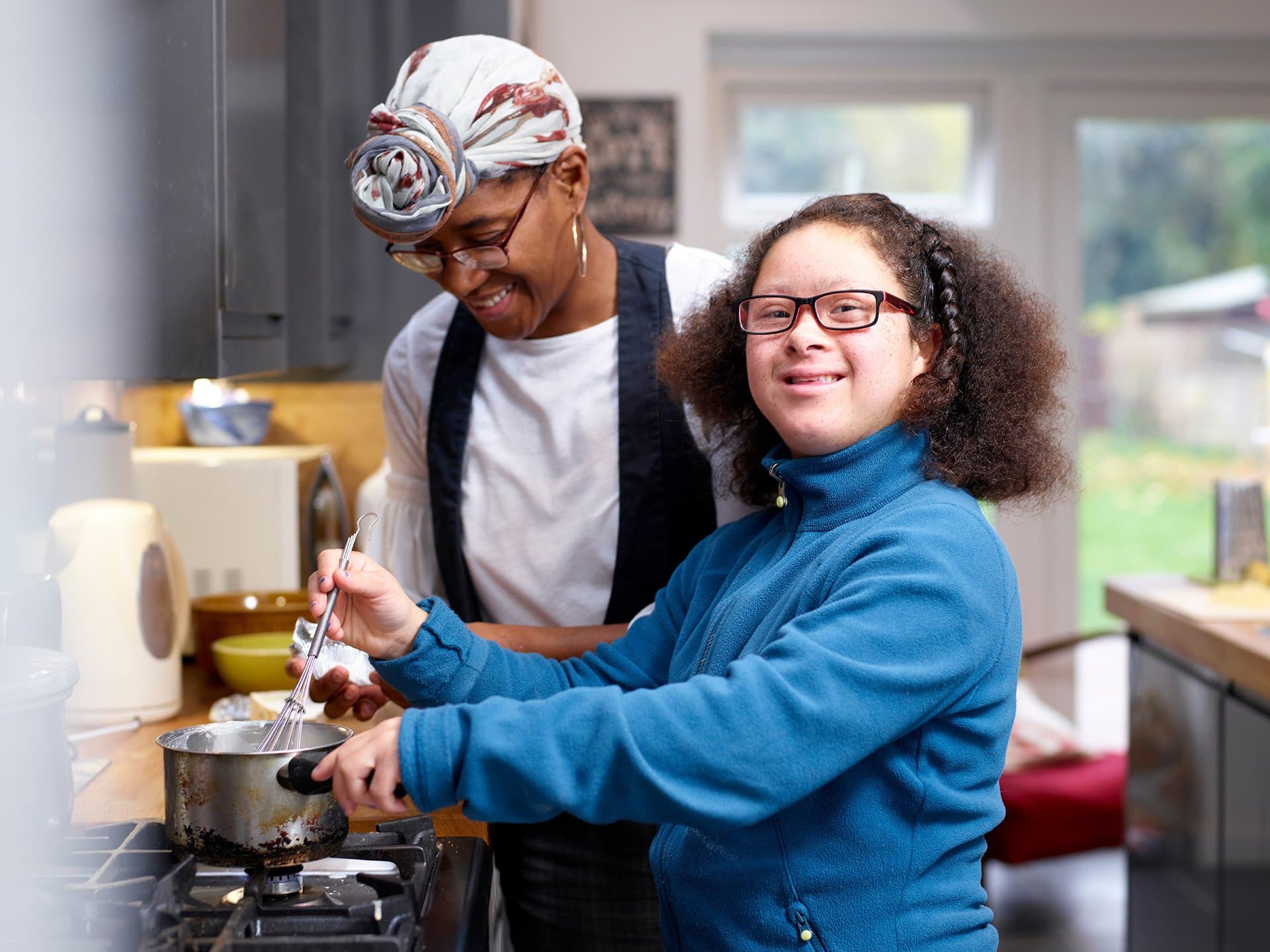Living with I/DD can pose definite challenges to developing independent living skills that many people take for granted. For adults with I/DD, learning to perform these everyday tasks is essential to gaining more self-sufficiency in their daily lives. Many skills are taught with patience, simple direction, and repetition by a family member or a qualified clinician such as an occupational therapist. Other adults may require their environment being altered to accommodate their special needs to learn a specific skill more easily.
Teaching may be focused on maximizing independence to their most functional level or for an individual to live safely on their own. The primary goal is to ensure that these individuals are encouraged through respect and positive reinforcement to develop the basic skills needed for work, play, and daily living. By gaining more independence, adults with I/DD can realize a happier, more meaningful life filled with a greater sense of awareness and purpose.
What Are Independent and Functional Living Skills?
The ability to learn depends greatly on the level of disability. Skill-building comprises a roster of tasks that start with individuals becoming conscious of themselves as an entity, requiring daily maintenance of personal hygiene and grooming, and taking care of their general health and nutrition.
Adults with I/DD may also be taught to manage their home environment, personal safety, and understand basic finances. Individuals also learn:
- Pre-vocational skills that aid in potential volunteer and job opportunities
- Interactive recreational skills through puzzles and other tabletop activities
- Functional math and reading skills for shopping, cooking, or other activities
Individuals are able to develop an awareness of their surroundings and more constructive problem-solving. Many adults with I/DD are able to connect more with their communities, navigate transit and gain employment.
Strategies For Encouraging Independence
Helping an adult with I/DD to become more independent can often be challenging. . However,the following strategies can help caregivers ensure that individuals successfully reach their goals:
Avoid Micromanaging
Rather than hold on too tightly, let the adult take responsibility for their thoughts, ideas, and goals. Stepping back allows them to step forward.
Develop a Strong Support Team
A trusted team of professionals and family members working with an individual with I/DD provides a strong support network for both recipient and caregivers, supplying knowledge, strengths, and additional security and stability.
Learn From Their Perspective
Remember that your perspective will differ from an individual’s experiences and feelings. Put yourself in their shoes for a moment to understand why they feel as they do.
Patience and Respect
Learning new skills is life-changing and will take time and patience. Each small step forward to us is a huge step for an adult with I/DD. Respect their boundaries and their choices while acknowledging their triumphs. Fear and anxiety can discourage someone with I/DD, so keeping their spirits up is essential for continued growth.
Learning independent and functional living skills is a lifelong journey for people with I/DD. New York’s Independent Living Association (ILA) provides continuous support for Individuals through exceptional programs and services that help them thrive in their communities.
For more information on ILA’s array of services, visit ilaonline.org/services. Increased confidence, enhanced social interaction, and broader community integration for Individuals await!

































































